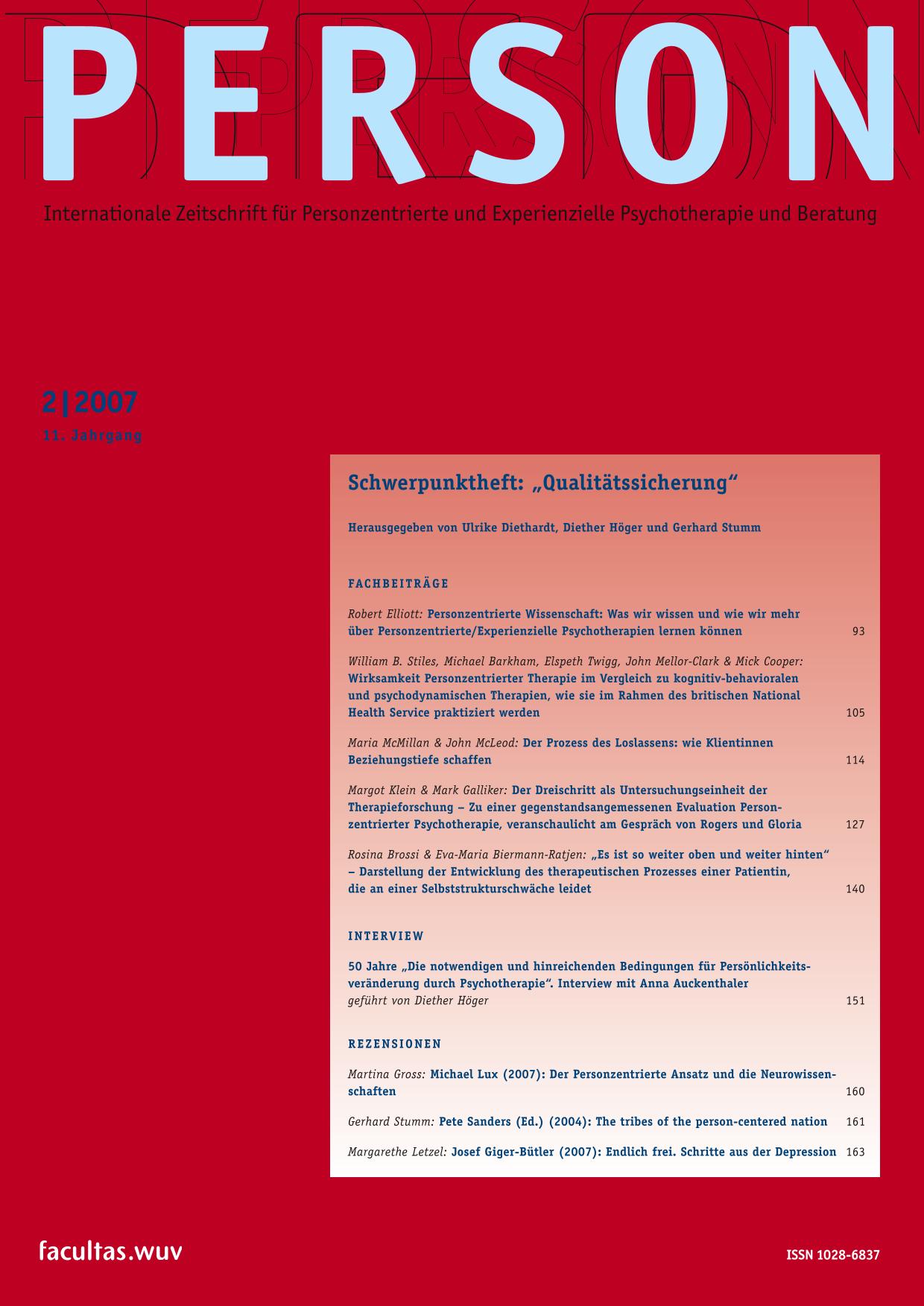Der Prozess des Loslassens: Wie Klientinnen Beziehungstiefe schaffen
Main Article Content
Article Sidebar
Abstract
The process of letting go: client formation of relational depth. The significance of the therapeutic relationship, as a central factor in the effectiveness of psychotherapy, has been supported by a substantial amount of research. However, relatively little is known about how clients experience optimal therapeutic relationships. The model of relational depth, developed by Mearns and Cooper (2005), provides a valuable framework for making sense of this aspect of therapy. The aim of the present study was to widen the knowledge of relational depth by exploring it from the client’s perspective. A qualitative study was carried out using ten counsellors’ experiences as clients over a total of 33 different therapy episodes. Data were analyzed using a grounded theory approach. The client’s perspective is shown to differ considerably from the findings of previous research into the therapist’s perspective. The account of relational depth generated by these clients suggested that deeply facilitative therapy relationships are characterized by a willingness to ‘let go’ on the part of the client, and enter into an enduring relationship with their therapist. Clients’ descriptions disclosed aspects of relational connectedness that may often be hidden from practitioners. The implications of these findings for the theory of relational depth, and for the practice of counselling and psychotherapy, are discussed.
How to Cite
Downloads
Article Details
client experience, grounded theory, relational depth, qualitative research

